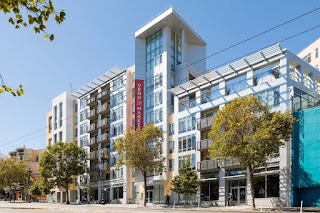Is it better to buy or rent in San Francisco?
The better deal in the long run depends on how long your run is
San Francisco has always been a renter’s city. Even in recent years, when soaring real estate prices have increased the incentive to buy, the SF Planning Department estimates that nearly 65 percent of San Franciscans rent.The question for a newcomer arriving to the city after both home prices and rents ran away with the bank in recent years is: What makes more economic sense these days, renting or buying?
That depends. In the short term, renting is always more affordable—otherwise why would anyone do it?—but after a certain number of years the returns diminish.
How long that takes depends on a lot of predictions—or assumptions. In 2018, an increasing number of economic prognosticators suggest that SF is in a weird season when renters are actually getting the longer end of the stick.
Here’s the breakdown:
- In July, real estate site Trulia declared that, for the first time since it began evaluating the relative merits of renting versus buying, renting had finally become the more affordable option in both San Francisco and San Jose. Trulia economist Cheryl Young wrote that “escalating prices are driving homes further out of reach” during a time when rent price stayed relatively flat. Young’s study assumed that households stayed in the same place for at least seven years and that homebuyers went in for a 30-year fixed mortgage.
- Note that Trulia’s rent figures reflect only the homes on Trulia, not a truly objective survey of rent prices across SF. But since Trulia prices are likely to be higher than average, this doesn’t detract much from Young’s conclusions.
- Trulia does provide its own rent-versus-buy calculator to determine the break-even point for a hypothetical deal. For example, using data firm Core Logic’s latest SF home price median of $1.31 million, renting at $4,370/month is more affordable than buying up until the nine-year mark. On the other hand, any rent less than that will always be cheaper than buying in SF—provided that the aforementioned median price doesn’t depreciate.
- For a different perspective, in 2017 real estate group Paragon compared buying a two-bed, two-bath condo (for $1.15 million, a median price on MLS at the time) to renting a similar sized home for around $4,500/month—an average market rent at the time. By refining the type of home to this specific size, Paragon found “using the specified rates of appreciation, inflation and investment returns, your home purchase breaks even in approximately 2.7 years.” Note that in the year since the 2017 report, the median price for an SF condo ballooned to $1.2 million, according to Paragon’s summer of 2018 SF report.
- The New York Times has a rent-versus-buy calculator tool similar to Trulia’s: As the Times’ Upshot site reckons, a $1.31 million median home price in SF means that any rent less than $4,230/month is a better deal over nine years, while any amount higher would be best suited for buying.
- Of course, this changes as the variables change: If you stay in place for 15 years instead, then the competitive rent drops to $3,922/month. Whereas staying for only one year means any rent less than $14,000 is better—although few people buy a house for only one year.
- Keep in mind that these guidelines assume you’re buying at the current estimated median home price. A cheaper home—say, just $800,000—changes the results too: At that price point, hypothetical rent has to decline to $2,628/month by the NYT estimate.
- Finally, one more rubric: Investment site Smart Asset crunched numbers earlier this year and determined that in San Francisco, a $550,560 home price is needed to beat out a $1,000/month rent. Of course, only with assistance from the city can people find a deal at either of those prices, but it’s a scalable ratio.
The reason: “Under most plausible return scenarios, housing is overpriced in every examined market,” according to Staley’s calculations. The engineer goes on to caution that at current prices “abnormally high returns” would have to continue for years to make buying a better option.
By Adam Brinklow



Comments
Post a Comment